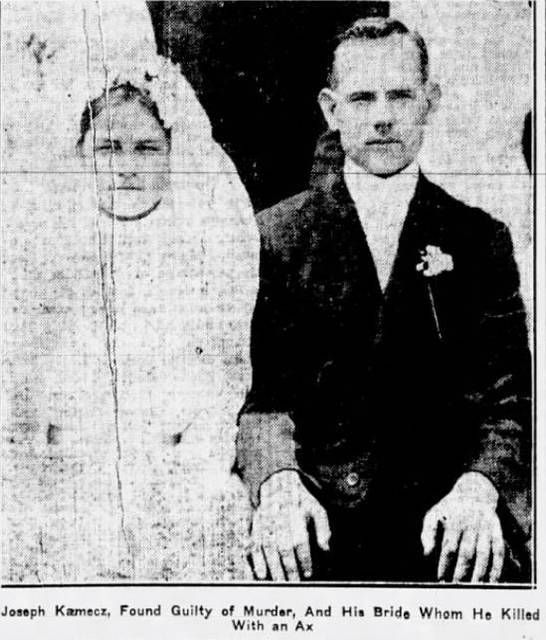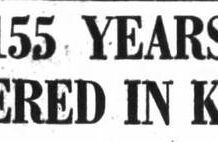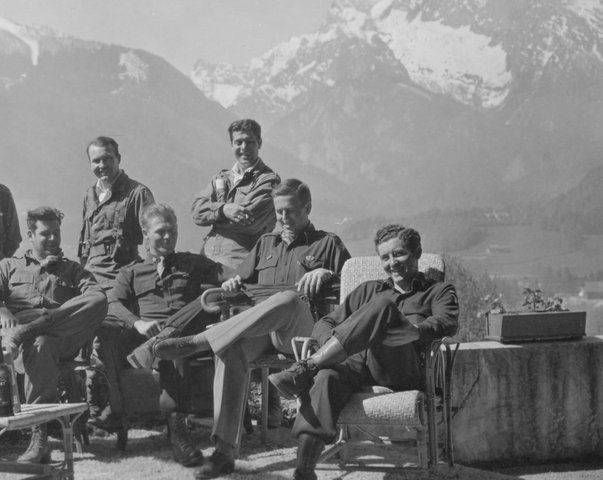Click here to subscribe today or Login.
Married only four months, Joseph Kamecz nearly beheaded his young wife and hacked her body during a jealous rage inside their two-room, basement apartment at 62 Brookside St., Wilkes-Barre, on Nov. 16, 1914.
Hearing the quarrel, Katie Schlinski who lived in the front of the basement looked through a keyhole, seeing Kamecz standing over the nude body of his wife and holding an axe dripping with blood.
The gruesome crime was described to the jury by Luzerne County Assistant District Attorney Paul Bedford “as one of the most shocking and revolting in the history of the county,” according to a story in the Times Leader Evening News on April 30, 1915.
Kamecz, who was arrested under the name Joseph Karni, was a Russian and spoke little English. He was 29 when he brutally killed his wife, Sophie, then 18, inside their tiny basement apartment.
Kamecz confessed to the crime when interviewed by police on Nov. 17, 1914, the Times Leader Evening News reported the same day.
Their marriage was not so lovely.
Kamecz told police he did not want to marry the young woman as their marriage was set up by her sister in Dupont. He knew he was too old for her, but she wanted a husband.
“He said his wife was a nice, good woman, but that she did not like him. He added that he was induced to marry her by her sister, and that he did not know the girl 24 hours when the marriage agreement was made. He added that he was sorry he killed his wife,” according to a story in the Wilkes-Barre Record on April 30, 1915.
Kamecz claimed they often fought about money as his wife kept asking him to buy alcohol. When he refused, she sought his arrest on a charge of assault and battery with an alderman, which at the time was a member of city council, on Nov. 12, 1914.
Kamecz was jailed for two days before his young bride withdrew the charges.
While jailed, Kamecz thought about killing his wife. Back in their basement apartment, his wife asked for money to buy alcohol. He refused, walked outside to get an axe from a shanty, and returned striking his wife with the weapon. He held his wife’s head over a sink slitting her throat with a butcher knife nearly decapitating her.
Schlinski, the other basement tenant, testified at Kamecz’s trial she heard the couple arguing, then heard the woman scream, “Oh God, My Lord,” then heard the dull sound that sounded like a body dropping to the floor.
Two police officers found the lifeless and nearly headless body on the kitchen floor. Kamecz was found lying on a bed in an adjacent room, unresponsive but following the two officers with his eyes.
Kamecz sought an insanity defense at his April 1915 trial in the Luzerne County Courthouse.
A judge charged the jury on four possible verdicts, including acquittal due to insanity.
The jury deliberated for nearly eight hours convicting Kamecz of second-degree murder. As the verdict was read at 8 p.m. on April 30, 1915, Kamecz muttered prayers and blessed himself, the Times Leader Evening News reported.
Kamecz was sentenced to 19-to-20 years in prison, serving his time at the Eastern Penitentiary in Philadelphia. He was granted a pardon in May 1929 by the state Board of Pardons, according to the Times Leader Evening News on May 16, 1929.







